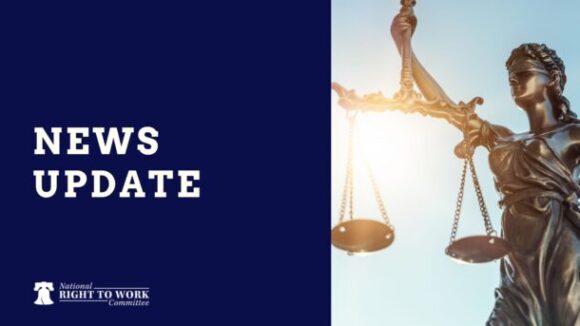Why are Democrats in Wisconsin and Indiana fleeing the state rather than vote on reform measures? It’s because Big Labor and the Democratic Party are completely codependent upon each other, the Investors Business Daily opines:
The fleeing Democrats in Wisconsin and Indiana say they are protecting state workers, but they have plenty of self-interested reasons to hit the road. Their self-imposed exile and national Democrats’ support show just how key Big Labor is to their fortunes.
Unions have long been a backbone of support for the Democratic Party. They have become even more important in recent years as they ramped up campaign efforts. Without them, Democrats have no chance of reversing the GOP’s 2010 gains.
The American Federation of State County and Municipal Employees, the top public-sector union, spent a reported $87.5 million nationally in the 2010 election cycle — 99% for Democrats. The Chamber of Commerce, by contrast, spent $75 million.
The National Education Association spent $40 million, and the Service Employees International Union spent $44 million.
That doesn’t count the unions’ importance in get-out-the-vote efforts, in organizing rallies and in other election activities.
There will be 91 electoral votes at stake in the seven upper Midwest states from Minnesota and Iowa to Pennsylvania (excluding President Obama’s home state of Illinois).
In 2008, Obama won all those states, including a narrow victory in Indiana. But in 2010, Republicans in the area had their best election in decades, picking up 16 House seats, two Senate seats, and five governorships. Only Minnesota’s governorship flipped from Republican to Democrat.
“The (fleeing) state senators in Wisconsin and now Indiana are doing so to protect a constituency that is important to them,” said Roger Hickey, co-director of the Campaign for America’s Future, a labor-backed activist group.
Hickey was quick to add that the lawmakers view the bill as fundamentally unfair to state-worker unions.
Labor sees it as a moral crusade and a matter of survival.
“The governor of Wisconsin is not waging a budget battle. He is waging a battle against middle-class working folk by attempting to eviscerate their voice. And that is why the Democrats in the Wisconsin Senate left,” said Randi Weingarten, president of the American Federation of Teachers, which represents 20,000 people in the state. “The voice is economic collective bargaining rights.”
But Steven Malanga, senior fellow at the conservative Manhattan Institute, says that’s because the two are co-dependent.
“The unions really have become the Democratic Party, and that’s why they fled,” he said.
Public-sector employees have become an increasingly important part of Big Labor. While unions represent just 6.9% of the private sector, they represent 36.2% of the public sector, according to Labor Department data. Public-sector union membership of 7.6 million now tops the 7.1 million private-sector union members.


